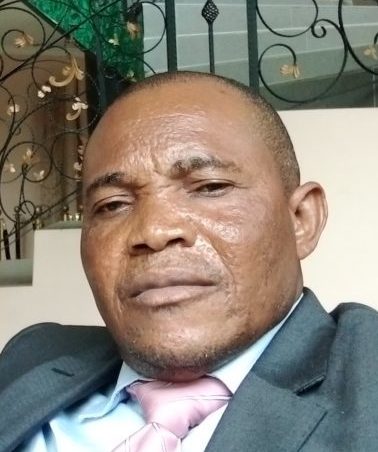The DRC introduces a national plan to combat sickle cell disease
25/11/2020
The national strategic plan to combat sickle cell disease, established by DRC public authorities with support from the Fondation Pierre Fabre, was presented to major international health partners in Kinshasa last September and then officially approved in early November. Its objective is to have the disease made part of the essential health services package by 2022.
The Democratic Republic of Congo Minister of Health invited the health sector’s institutional, technical and financial partners to a presentation of the strategic plan to combat sickle cell disease on 8 September. The partners, most importantly the WHO, UNICEF and the Global Fund, ultimately intend to take the disease into account in the programmes they fund in the DRC.
On 5 November 2020, the Ministry of Health’s Services Commission approved the DRC’s national strategy to combat sickle cell disease, a plan that is aligned with the National Health Development Plan, officially marking the integration of sickle cell disease treatment into the country’s health system, which is the second largest in Africa, covering an area over two million square kilometres, with 516 health zones.
DRC: the African country second-most affected by sickle cell disease
The DRC, with prevalence in new-borns estimated at 2%, is the African country second-most affected by the disease, after Nigeria. It is estimated that 50,000 children are born each year with sickle cell disease and that half of them die before the age of five, when early and appropriate treatment means patients can control symptoms and avoid severe seizures.
The DRC’s commitment is meant to dovetail and focus the efforts of all entities, stakeholders and financial partners to help improve the health of the sickle-cell population. This is an important step toward fully recognising the burden of this disease and the need to build a generalised approach to prevention and treatment.
The Fondation Pierre Fabre’s support for the Ministry of Health
The Fondation Pierre Fabre, working in the DRC since 2014 as part of a partnership with the Institut Européen de Coopération et de Développement (IECD), was asked by the public authorities to provide its expertise and contribute to the process of aligning the national sickle cell disease plan with the National Health Development Plan.
This support takes two forms:
- Supporting local partners in formalising a national strategy for having sickle cell disease incorporated into the country’s major health programmes;
- Establishing a targeted action plan for diagnosis, caregiver training, raising public awareness and collecting epidemiological data.
A pilot project in three DRC health zones
Along with this support, the Fondation Pierre Fabre has requested funding for a pilot operational phase from the Agence Française de Développement (AFD). The project will be implemented in three DRC health zones, supporting local centres in treating sickle cell patients.
This three-year project focuses on supplying equipment, training staff, increasing prevention among young people and raising community awareness. The results of this pilot phase, scheduled to start in 2021, will formalise impact results, furnish the national project with additional data and facilitate scaling up across the country.

Three questions to Léopold Nzambimpungu, Deputy National Director of the DRC Ministry of Health’s national programme to combat sickle cell disease
How did the strategic plan to combat sickle cell disease come about?
“It arose out of the strong political will to integrate treatment of sickle cell disease into our national health development plan and our healthcare system, meaning community health centres, referral hospitals and research programmes. Sickle cell disease is a neglected disease, yet it’s the world’s leading genetic disease and, sadly, we are one of the most affected countries.”
What will change for sickle cell patients?
“The goal is to integrate screening and treatment for sickle cell disease into the essential health services package, just as HIV/AIDS, malaria and tuberculosis are today. With consistent early detection, we will facilitate access to treatment and improve the quality of services offered nationwide, with a clear priority: children, whose mortality rate is particularly high in remote rural areas.”
How is the Fondation Pierre Fabre supporting this work?
“The Fondation Pierre Fabre helped us with the approval of the normative documents and we asked them to also establish a roadmap and formalise advocacy to help bring in other financial partners. Furthermore, we need support in our communications and awareness-raising, because sickle cell disease is a poorly understood, stigmatising disease that is burdened by many archaic beliefs. There’s a great deal of educational work to do in communities to change peoples’ mindsets.”


